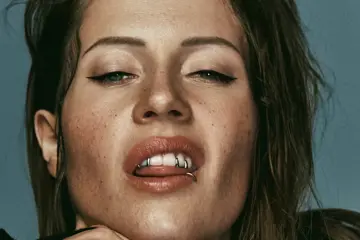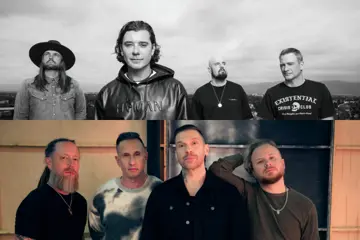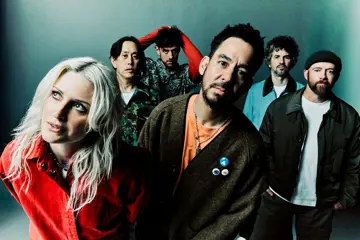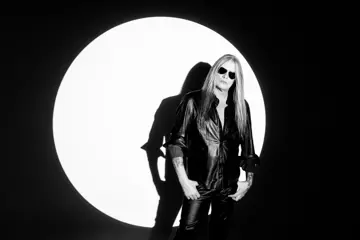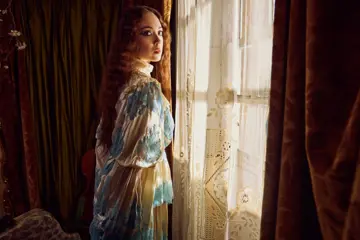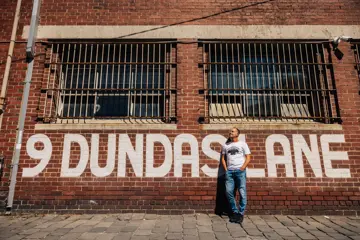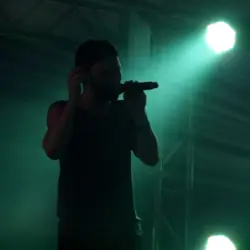 Autre Ne Veut
Autre Ne VeutArthur Ashin, stage name Autre Ne Veut, speaks like a clinical psychologist, which he was, until recently, intent on being. Throwing in the academic world for that of bedroom electro R&B was not a move he took lightly. “In the clinical psychology framework of the American academic world, you're not meant to do other things, as this shows you're not dedicated to being a serious clinician,” he says curtly. The weight of this decision informs his acclaimed debut album Anxiety. However, he has no such feelings about his forthcoming Australian shows.
“For some reason I'm optimistic about Australian audiences,” he says warmly. “It's not based on any logical assumption. I saw Flume play the other month and there were mostly Australians in the audience, so if I get a fraction of the psych he got, I'll be stoked.”
This balance of euphoria and exposed internal pressures is a way of life for Ashin. Having released several EPs anonymously (“I wanted to avoid Google searches of my name – music disseminates online much faster than a journal byline” he explains), Ashin's commitment to a musical calling has thrust him into the international limelight. With a Best New Music prop from Pitchfork and countless blogs already calling Anxiety one of the albums of the year, Ashin finds himself explaining the line between authorship and catharsis. “I think of songs and production as being able to be worked with and against each other,” he says quickly. “They're not detailed personal accounts; they're not examples of anxiety. Play By Play is a six-minute meditation on jealousy, which is not to say I'm perpetually jealous. It's not about one moment of jealousy; it's just a mediation on the idea for me. It plays on the idea of a populist trope in music, but also has a potential to be socially anxiety-producing, in the way that Hollywood film perpetuates the same scenes and ideas over and over again: how to be a hero and what constitutes the idea of heroic behaviour. These superimposed, top-down ideas are so deep-seated that when we seat them next to our carnal desires or id-expressions there's this inherent dissonance between these two things, or societal expectations. The production ideas I use are informed by the broader ideas of society, capitalism and media on which [I'm] superimposing norms so, yeah! [Anxiety] is both personal and a societal creation.”
Listening to Anxiety is an overwhelmingly positive experience. Far from psychological offloading, Ashin is mainly concerned with beats, textures and subverting the overt physicality of R&B into something just as powerful, but more cerebral than sexual. “I was on a life path,” he explains by way of outlining his methods. “I was doing my plan B 100%. Making records is not just cathartic, you get to curate yourself and you decide what aspect of your catharsis translates well. If I could get paid a modest amount to perpetually produce music I would probably be the happiest I could be. Once in a while I would go to some sort of intellectual salon and have a half-arsed conversation about plan B to keep my academic brain rolling to a passable degree.”
Don't miss a beat with our FREE daily newsletter
Ashin's proclivity to anxiety has surprising positives when it comes to touring. “I have the benefit of having a massive amount of stage fright, which creates stress and adrenaline rush. So maybe I'm playing the same shit every night, but I'm still scared to do the same thing. I have a lot of visceral action in my body while performing, so it's not as mundane as it might be for a braver, more bored individual,” he shares.
Many listeners have pointed out how '80s-influenced his music sounds though, as Ashin points out, this is far from intentional. “I was born in the front end of the '80s and there are musical aspects that are deeply embedded in me,” he muses, “and I guess that comes through on this record. I have never tried to make '80s music, but what I do love about the '80s is the idea of the popular avant-gardists, people like Peter Gabriel, David Byrne, Annie Lennox. They were simultaneously engaged in ideas that pushed against the very foundations they were helping to create and I find that so compelling. I'll never sit down to make an '80s-sounding song or album, never, but when I'm trying to create a Dr Luke-style gated synth and it ends up sounding more 1987 than 2007, that's okay [laughs].”


